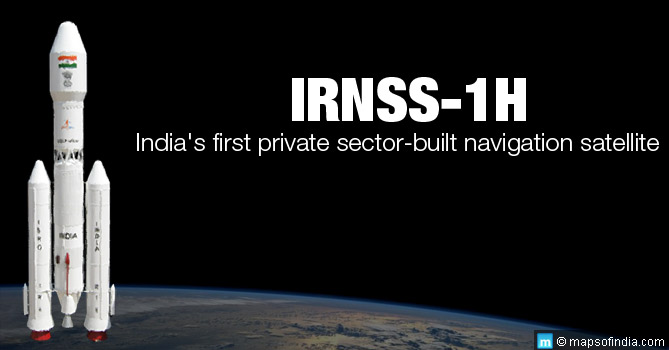Indian Space Research Organisation is all to launch a private sector-built navigation satellite. This is the first time that a satellite is being launched in collaboration with the private sector. The launch of the satellite IRNSS-1H will take place at 7 PM today, August 31. The launch will take place at the Satish Dhawan Space Centre located in Sriharikota,
The people behind IRNSS-1H
This is for the first time in the history of India that the private sector has been roped in for the assembling as well as testing of a satellite. The Satellite has been built by a consortium led by Alpha Design Technologies, which is based in Bengaluru, the capital of Karnataka. However, 70 scientists from ISRO supervised the work of the consortium.
The reason behind the launch of IRNSS-1H
The IRNSS-1H is basically a replacement for the IRNSS 1A. One of the seven satellites of NAVIC, the IRNSS 1A malfunctioned as its atomic clocks stopped functioning. The atomic clocks are important components of the satellites as they provide accurate positional data. This malfunction necessitated the launch of the new satellite.
Features of IRNSS-1H
The latest launch, the IRNSS-1H comes with a whole lot of advanced features.
To start with, the new satellite is quite heavy and weights a whopping 1,425 kg. To be launched aboard the PSLV-C39, the IRNSS-1H will be basically used for the navigation-based applications.
Just like the other satellites, the IRNSS-1H too carries two types of payloads. These are the ranging payload and the navigational payload.
The ranging payload comprises a C-band transponder. This transponder is highly useful, as it would assist in exactly determining the satellite’s range.
The navigation payload will be operating in S-band and L5-band. This will payload will enable to transmit navigational service signals to the users.
Much more flexible than the previous one, the IRNSS-1H is also supposed to be much more compatible with its services.
Functions of IRNSS-1H
The satellite will perform numerous functions that will be useful for fishermen, merchant fleet, travelers, as well as hikers. It will provide navigation aid for travelers and hikers. It will be particularly useful for drivers as it would offer visual and voice navigation. The other services offered are tracking and fleet management, marine and terrestrial navigation and help in disaster management. It would be quite handy for railways and would offer location-based services.
A progressive step
This is a progressive step and with this will begin a new age of private sector participation in satellite building in India. Private collaboration will surely provide a big boost to India’s space exploration programme. By partnering with private companies, India’s space programs will get a new perspective. Earlier, the private companies were only supplying components but the latest launch shows that their role has become more diversified and now they would be involved in satellite building as well. Though, the work of the private consortium has been supervised by ISRO’s scientists but it has been reported that the officials are satisfied and have termed the private sector’s role as commendable.
It has been reported that in the times to come more private sector companies will be roped in satellite assembly activities. Their participation would help in swiftly preparing satellites.





